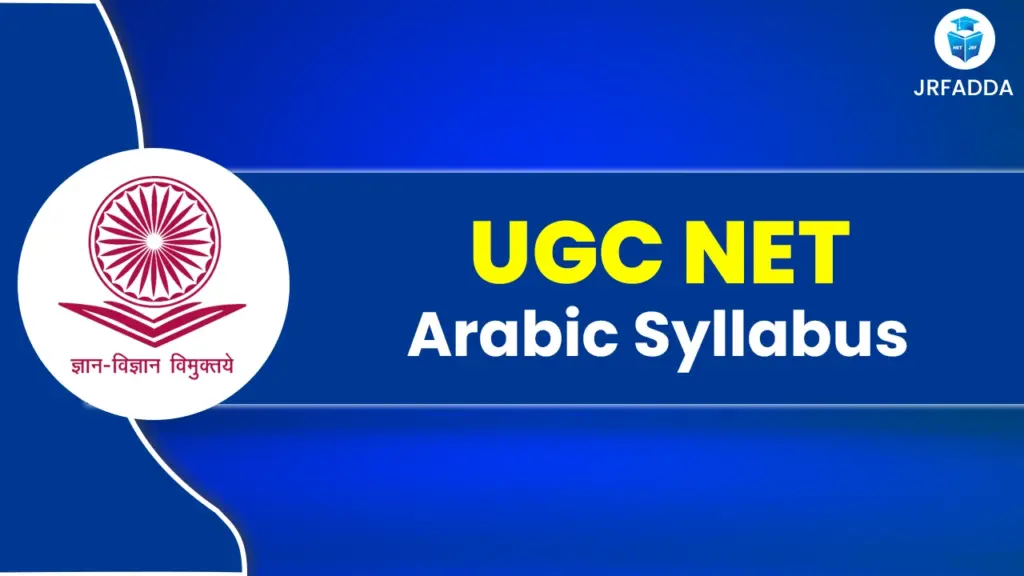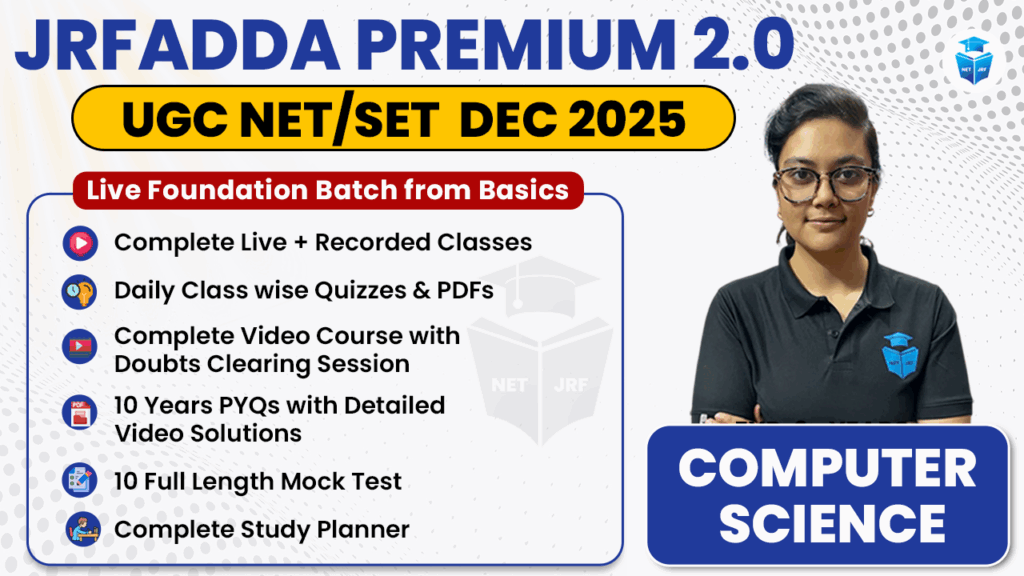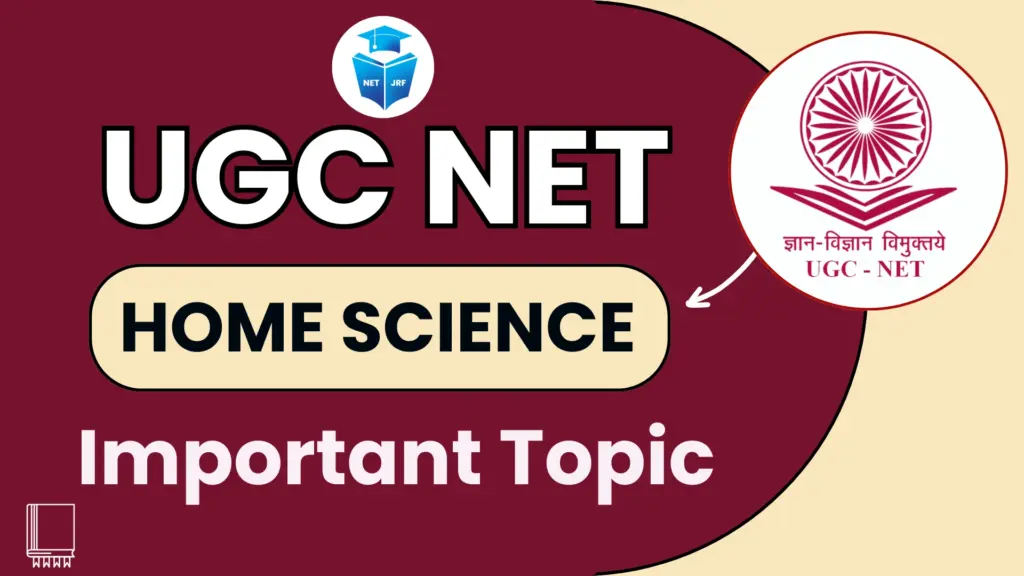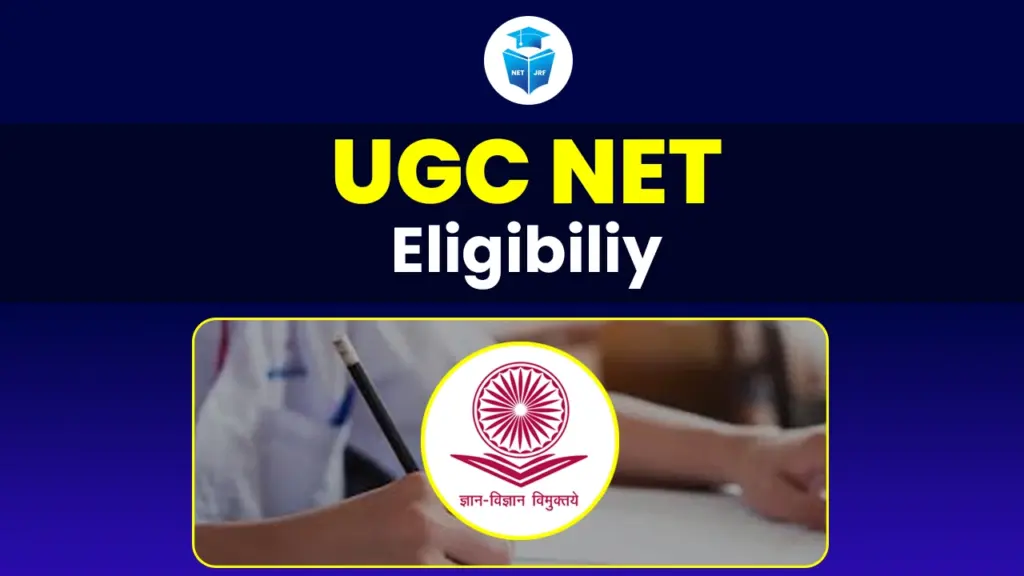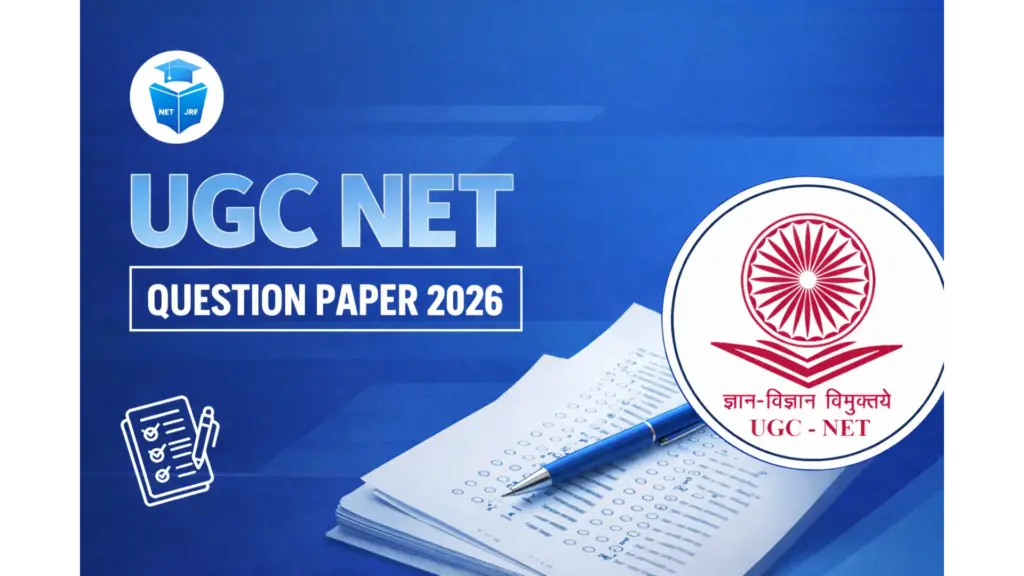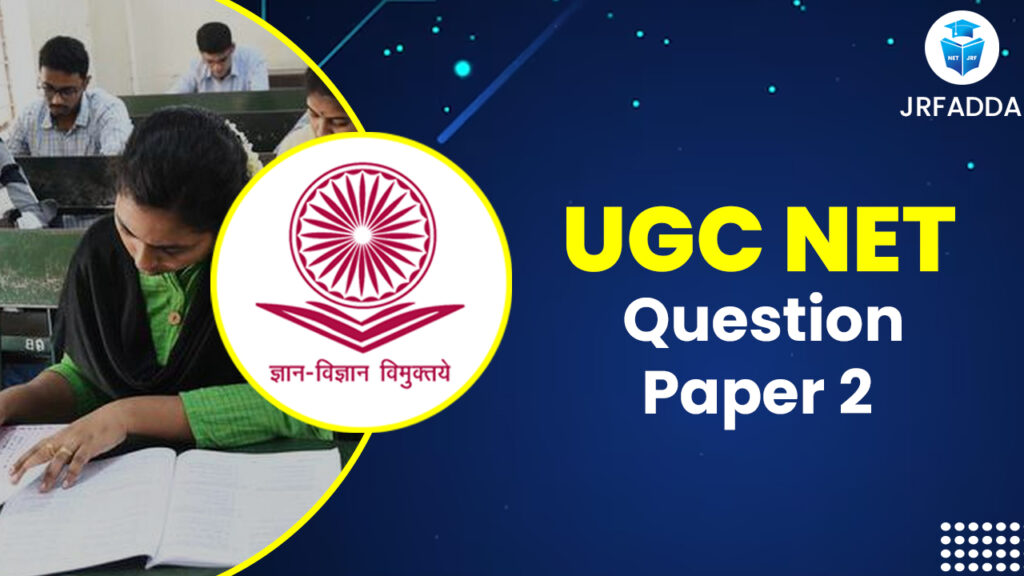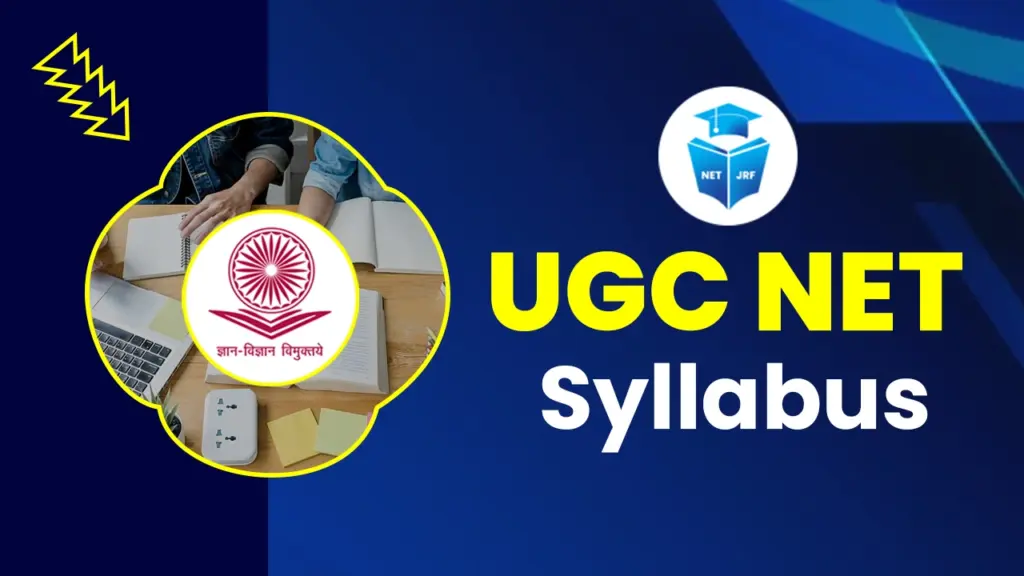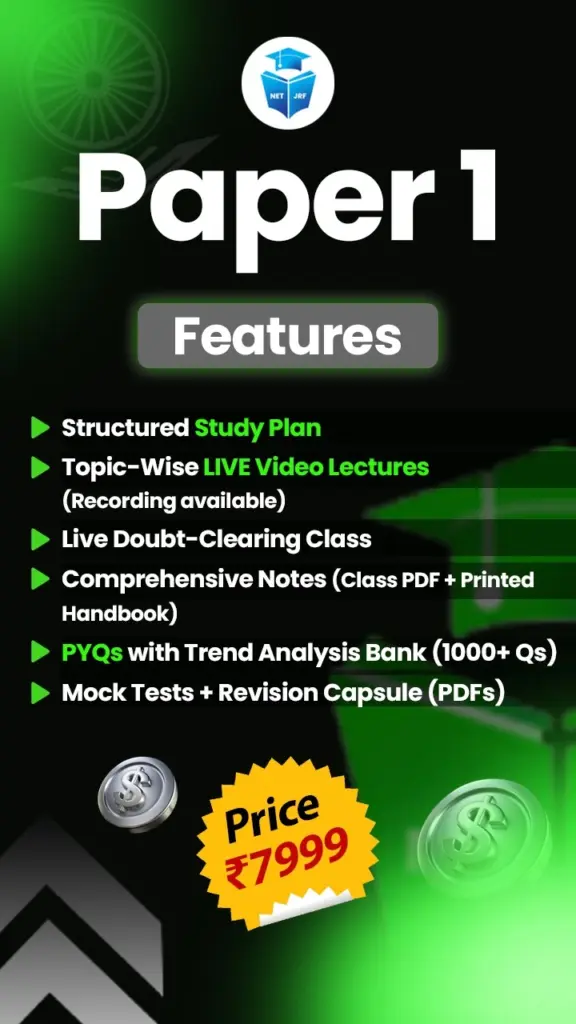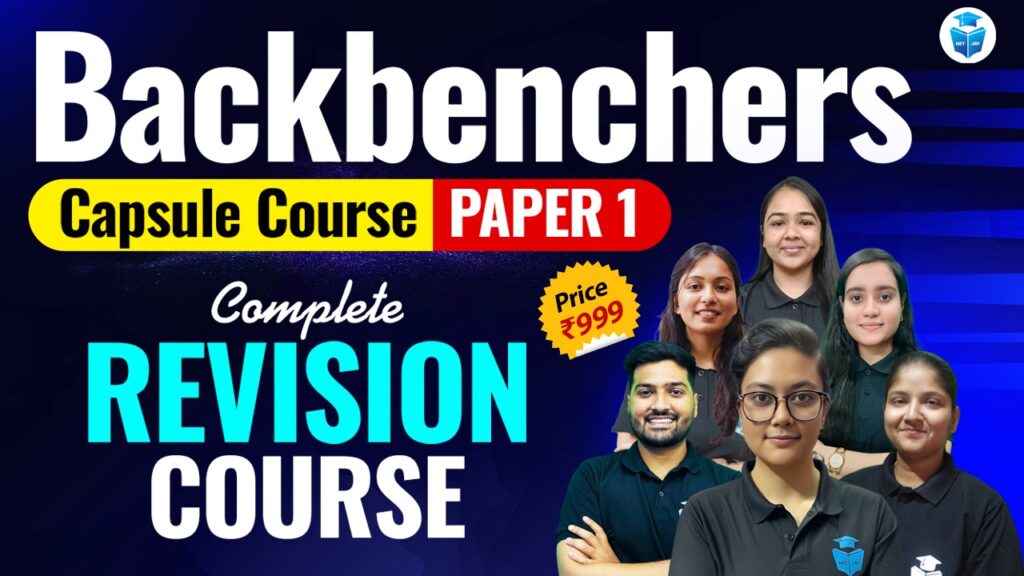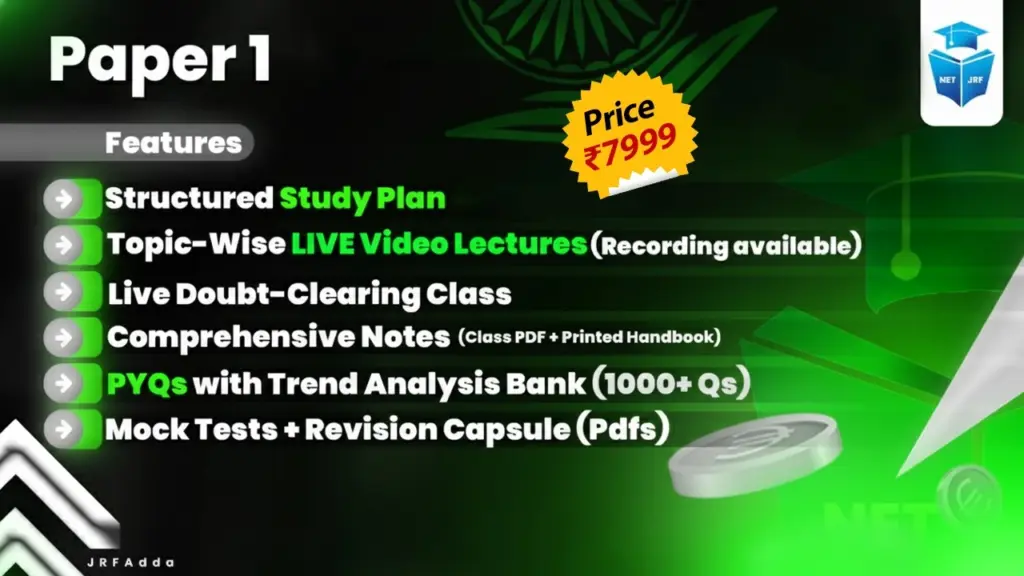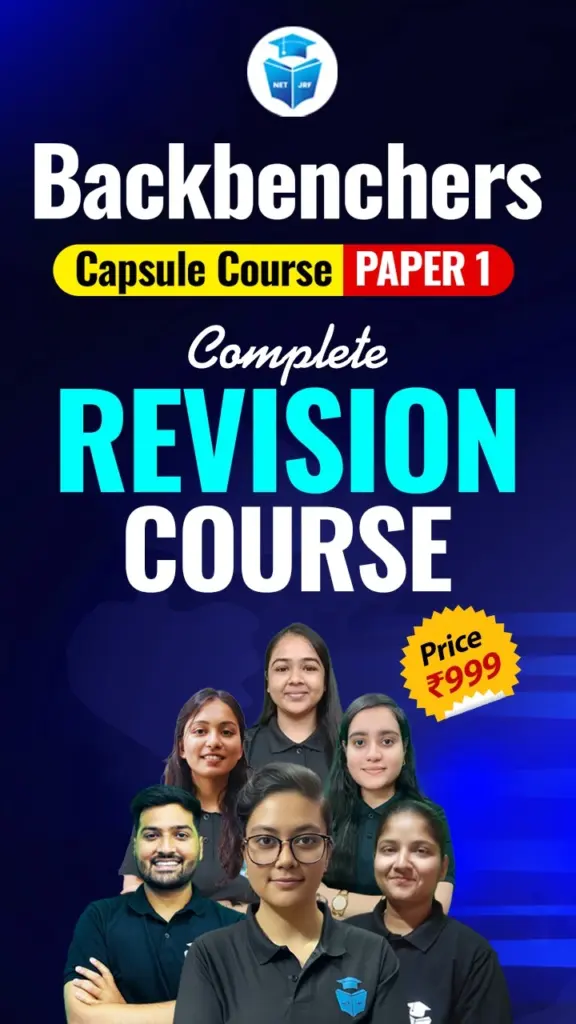UGC NET Arabic Syllabus 2026 has been officially released by the National Testing Agency (NTA). This updated syllabus encompasses detailed topics in Arabic literature, grammar, linguistics, classical and modern poetry, and literary criticism. Aspirants aiming for Junior Research Fellowship (JRF) or Assistant Professor roles must study the syllabus comprehensively. Arabic is designated with the Subject Code 29, and the syllabus is systematically divided into 10 units, covering both classical roots and modern developments in Arabic studies.
Also Read: UGC NET Exam Date
UGC NET Arabic Syllabus 2026 Overview
The UGC NET exam is a national-level eligibility test conducted twice annually by the NTA to determine candidates’ suitability for teaching and research roles in Indian higher education institutions.
| Feature | Details |
| Exam Name | UGC NET 2026 |
| Conducting Authority | National Testing Agency (NTA) |
| Purpose | Eligibility for Assistant Professor & JRF |
| Exam Frequency | Twice a year |
| Exam Mode | Computer-Based Test (CBT) |
| Medium of Exam | Arabic |
| Total Duration | 3 Hours (180 Minutes) |
| Papers | Paper I (General), Paper II (Arabic) |
| Subject Code for Arabic | 29 |
| Exam Date | 2 January, Shift 1 (9:00 AM – 12:00 PM) for december session of 2025 |
| Official Website | ugcnet.nta.nic.in |
Also Read: UGC NET Previous Question Papers PDF
UGC NET Arabic Syllabus PDF Download
Candidates preparing for the UGC NET Arabic exam are strongly advised to download the official PDF syllabus to ensure structured preparation. It provides detailed insights into literary, linguistic, and cultural dimensions of Arabic.
UGC NET Arabic Syllabus Units:
- Unit 1: Literature
- Unit 2: Language, Grammar, and Morphology
- Unit 3: Literature and Criticism
- Unit 4: Linguistics
- Unit 5: History and Culture
- Unit 6: Translation, Interpretation, and Translators
- Unit 7: Islamic Culture and Islamic Literature
- Unit 8: Comparative Literature
- Unit 9: Literary Research
- Unit 10: Feminist Literature and Feminist Criticism
| Download UGC NET Arabic Syllabus 2026 PDF |
Also Read: UGC NET Syllabus 2026 PDF Download
UGC NET Syllabus Paper 1 Unit Wise
Paper 1 is a general paper applicable to all UGC NET subjects, including Arabic. It evaluates the teaching and research capabilities of the candidate through a variety of aptitude-based questions.
| Unit No. | Topic | Detailed Description |
| Unit 1 | Teaching Aptitude | Teaching characteristics, objectives, learner traits, teaching methods, evaluation systems |
| Unit 2 | Research Aptitude | Types of research, ethics, hypothesis formulation, sampling, methodology |
| Unit 3 | Comprehension | Reading comprehension, logical analysis, and interpretation |
| Unit 4 | Communication | Types, barriers, classroom interaction, communication models |
| Unit 5 | Mathematical Reasoning & Aptitude | Series, percentages, ratios, quantitative comparison |
| Unit 6 | Logical Reasoning | Arguments, assumptions, analogies, deductive logic |
| Unit 7 | Data Interpretation | Graphs, charts, data tables, statistical basics |
| Unit 8 | ICT (Information & Communication Technology) | Basics of ICT tools, e-learning platforms, digital initiatives |
| Unit 9 | People, Development & Environment | Environmental issues, sustainable development, population dynamics |
| Unit 10 | Higher Education System | Policies, governance, educational bodies, NEP 2020 |
Download UGC NET Paper I Syllabus 2026 PDF
| UGC NET Paper I Syllabus 2026 | |
| English | Hindi |
UGC NET Arabic Syllabus Paper 2 Unit Wise
Paper 2 is specific to Arabic literature and language. It assesses subject knowledge across 10 academic and thematic units.
UGC NET Arabic Syllabus 2026 – Unit-Wise Topics Table
| Unit | Topics Covered |
| Unit 1: Literature | Literary environments (ancient, medieval, modern, contemporary); Concepts and genres; Arabic poetry (pre-Islamic to modern); Arabic prose (pre-Islamic to modern); Arabic drama (history, key works); Arabic novel and short story (history, key works) |
| Unit 2: Language, Grammar & Morphology | Vocabulary and semantics; Grammar (phonemes, letters, words, sentence structure); Morphology (patterns of verbs, nouns, adjectives); Historical grammar structures; Semantic development; Arabic and modern technology |
| Unit 3: Literature & Criticism | Definition and evolution of literary criticism (ancient to modern); Prominent literary schools and critics; Critical analysis of Arabic poetry, prose, drama, novel, and short story |
| Unit 4: Linguistics | Origins and history of Arabic linguistics; Language-thought relationship; Dialect patterns; Linguistic change and development; Dialects vs. classical Arabic in literature; Semantic, phonetic, morphological, grammatical, and textual analysis |
| Unit 5: History & Culture | Arab-Islamic civilization and classical thought; Abbasid and Umayyad periods and key intellectuals; Cultural heritage and modern movements; Arab Renaissance and modernity; Western influences on Arab literature and culture |
| Unit 6: Translation & Interpretation | History of translation in Arab world; Translation theories and concepts; Arabic-foreign language translation; Linguistic/cultural challenges; Translation evaluation; Role of translators in cultural exchange and diplomacy |
| Unit 7: Islamic Culture & Literature | Islamic cultural concepts and values; Cultural history of the Islamic world (early to medieval); Islamic sciences; Islamic literature (story, poetry, prose); Modern Islamic literature; Major Islamic scholars and authors |
| Unit 8: Comparative Literature | Comparative study of Arabic with English, French, German, Italian, Spanish, Indian, and Chinese literature |
| Unit 9: Literary Research | Literary research methods; Critical and comparative analysis; Contemporary research; Educational applications; Literary/textual analysis techniques; Contribution to literature and culture development |
| Unit 10: Feminist Literature & Criticism | Feminist literary theory and evolution; Feminist writing’s impact on Arabic literature; Feminist critique; Analyzing literature through gender perspective; Women’s representation in Arabic literature and socio-cultural influence |
جدول الموضوعات بحسب الوحدات – منهج UGC NET اللغة العربية 2026
| الوحدة | الموضوعات المشمولة |
| الوحدة 1: الأدب | البيئات الأدبية (القديمة، الوسيطة، الحديثة، المعاصرة)؛ المفاهيم والأنواع الأدبية؛ الشعر العربي (من ما قبل الإسلام إلى العصر الحديث)؛ النثر العربي (من ما قبل الإسلام إلى العصر الحديث)؛ المسرح العربي (تاريخه، وأبرز أعماله)؛ الرواية والقصة القصيرة العربية (تاريخها، وأهم الأعمال) |
| الوحدة 2: اللغة والنحو والصرف | المفردات والدلالة؛ النحو (الأصوات، الحروف، الكلمات، تركيب الجمل)؛ الصرف (أوزان الأفعال، الأسماء، الصفات)؛ التراكيب النحوية التاريخية؛ التطور الدلالي؛ اللغة العربية والتكنولوجيا الحديثة |
| الوحدة 3: الأدب والنقد | تعريف وتطور النقد الأدبي (من العصور القديمة إلى الحديثة)؛ المدارس النقدية والنقاد البارزون؛ التحليل النقدي للشعر والنثر والمسرح والرواية والقصة القصيرة العربية |
| الوحدة 4: اللغويات | أصول وتاريخ علم اللغة العربية؛ العلاقة بين اللغة والفكر؛ الأنماط اللهجية؛ التغير والتطور اللغوي؛ اللهجات مقابل اللغة الفصحى في الأدب؛ التحليل الدلالي، الصوتي، الصرفي، النحوي، والنصي |
| الوحدة 5: التاريخ والثقافة | الحضارة العربية الإسلامية والفكر الكلاسيكي؛ العصر العباسي والأموي والمفكرون البارزون؛ التراث الثقافي والحركات الحديثة؛ النهضة العربية والحداثة؛ التأثيرات الغربية على الأدب والثقافة العربية |
| الوحدة 6: الترجمة والتفسير | تاريخ الترجمة في العالم العربي؛ نظريات ومفاهيم الترجمة؛ الترجمة بين العربية واللغات الأجنبية؛ التحديات اللغوية والثقافية؛ تقييم الترجمة؛ دور المترجمين في التبادل الثقافي والدبلوماسي |
| الوحدة 7: الثقافة الإسلامية والأدب الإسلامي | مفاهيم وقيم الثقافة الإسلامية؛ التاريخ الثقافي للعالم الإسلامي (من العصور المبكرة إلى الوسطى)؛ العلوم الإسلامية؛ الأدب الإسلامي (القصة، الشعر، النثر)؛ الأدب الإسلامي الحديث؛ العلماء والأدباء الإسلاميون البارزون |
| الوحدة 8: الأدب المقارن | الدراسة المقارنة بين الأدب العربي والأدب الإنجليزي، الفرنسي، الألماني، الإيطالي، الإسباني، الهندي، والصيني |
| الوحدة 9: البحث الأدبي | مناهج البحث الأدبي؛ التحليل النقدي والمقارن؛ الدراسات البحثية المعاصرة؛ التطبيقات التعليمية؛ أساليب التحليل النصي؛ مساهمة البحث الأدبي في تطوير الأدب والثقافة |
| الوحدة 10: الأدب النسوي والنقد النسوي | نظرية الأدب النسوي وتطورها؛ تأثير الكتابة النسوية على الأدب العربي؛ النقد النسوي؛ تحليل الأدب من منظور نسوي؛ تمثيل المرأة في الأدب العربي والتأثير الاجتماعي والثقافي |
UGC NET Arabic Exam Pattern 2025
| Paper | No. of Questions | Marks | Type of Questions | Duration |
| Paper 1 | 50 | 100 | General Aptitude (MCQs) | 3 Hours |
| Paper 2 | 100 | 200 | Arabic Subject-Specific (MCQs) | 3 Hours |
Also Read: UGC NET Exam Pattern 2025
Tips to Prepare for UGC NET Arabic Exam 2026
Preparing for the UGC NET Arabic exam requires a strategic and disciplined approach. Here are detailed tips to help candidates prepare effectively:
- Understand the Complete Syllabus: Begin your preparation by thoroughly reviewing the official UGC NET Arabic Syllabus 2025. Make a list of all 10 units and break them down into subtopics. Focus equally on classical and modern Arabic literature, grammar, linguistics, translation, criticism, and journalism.
- Familiarize Yourself with the Exam Pattern: Know the structure of both Paper 1 and Paper 2. While Paper 1 tests your teaching and research aptitude, Paper 2 focuses exclusively on Arabic subject knowledge. Allocate your preparation time accordingly.
- Create a Study Plan: Design a study schedule that covers all the units of both papers. Allocate time for reading, note-making, revision, and practice. Divide topics across weeks and set realistic daily goals.
- Practice Previous Year Question Papers: Solving previous year question papers (PYQs) will help you understand question patterns, frequently asked topics, and time management. Analyze your performance after each test to identify weak areas.
- Take Mock Tests Regularly: Enroll in online or offline mock test series designed for UGC NET Arabic. These tests simulate the actual exam environment and improve your speed, accuracy, and confidence.
Conclusion
The UGC NET Arabic Syllabus 2026 offers a comprehensive structure for candidates preparing to qualify for academic positions. It spans essential aspects of Arabic literature, linguistics, grammar, and criticism. Download the official PDF, build a smart study plan, and elevate your preparation to crack the UGC NET exam confidently.
UGC NET Arabic Syllabus 2025 FAQs
What is the UGC NET Arabic Syllabus 2025?
The UGC NET Arabic Syllabus 2025 covers Arabic literature (poetry, prose, drama), language, grammar, morphology, linguistics, translation studies, literary criticism, and cultural studies across historical periods from pre-Islamic to modern times.
How many units are there in the UGC NET Arabic syllabus?
The syllabus is divided into ten units, each focusing on different aspects such as literature, grammar, translation, history, and literary criticism.
Is there a change in the UGC NET Arabic Syllabus for 2025?
As of now, the core structure remains consistent with previous years. However, aspirants are advised to refer to the official NTA website for any updates or revisions.
Does the syllabus include modern Arabic literature and authors?
Yes, the syllabus includes both classical and modern Arabic literature, covering contemporary authors, modern poetry, prose, and trends in Arabic writing.
Are translation studies part of the Arabic syllabus for UGC NET?
Yes, translation theory and practice are included, especially translations from Arabic to English and vice versa, as well as cultural and linguistic aspects.

